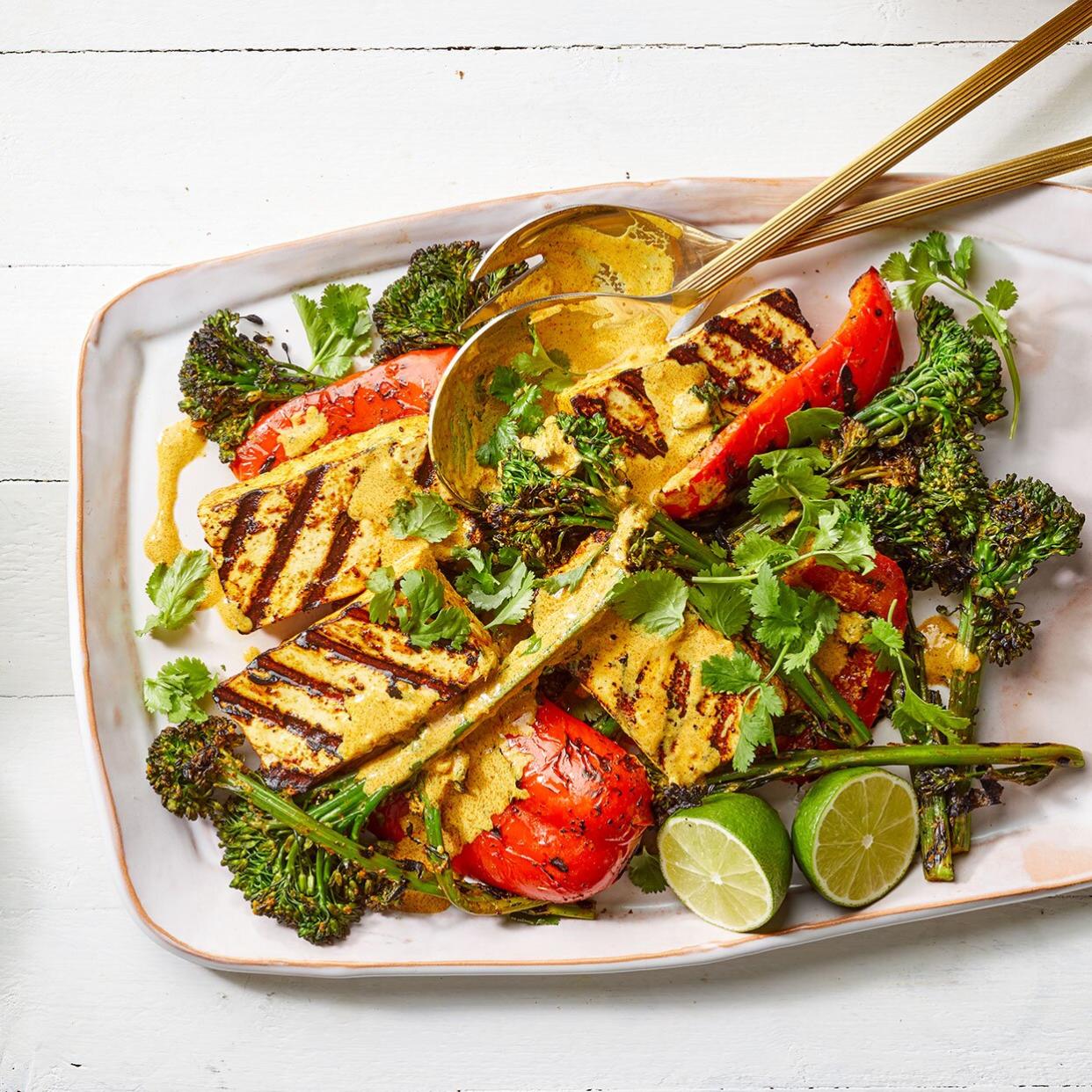4 Foods to Eat Every Day Post Cancer

Coming out on the other side of a cancer diagnosis and treatment is a huge victory—and a great time to bring new resolve to your healthy eating goals. Along with staying active and maintaining a healthy weight, eating a wide range of nourishing foods can make a big difference in boosting healing, feeling great and (most importantly) helping prevent a recurrence, says Elise Cushman, RD, a dietitian and Oncology Nutrition specialist at Norris Cotton Cancer Center/Dartmouth Hitchcock Medical Center in Lebanon, New Hampshire. "There are so many things about cancer that you can't control, but eating well is something you can have control over."
In general, the same guidelines recommended for reducing risk of cancer also apply to keeping healthy post-cancer. And, while there's no single superfood that stops breast cancer in its tracks—"foods work like an orchestra, with each one bringing different nutrients to the plate," Cushman declares—there are some food types that hit all the right notes, and it makes sense to add them to your plate daily. It's important to note that you might be experiencing some digestive distress post-treatment, so don't push through discomfort to eat high-fiber foods. Our list of anti-inflammatory foods to eat during treatment can help relieve some discomfort as well. Here's a roundup for four healthy foods to eat every day post cancer.
1. Lean protein (especially plant-based)
Cancer treatment (*can we just say "cancer treatment"?) often causes some muscle loss, whether from the medications themselves, from unwanted weight loss, "and just from being more sedentary while you're going through treatment," says Cushman. It's important to get enough protein daily to help muscles rebuild, and help the body fight infections and repair damaged cells. While protein needs vary, people living with cancer tend to need more, notes Cushman. Cushman recommends leaning into plant-based proteins like beans, nuts, quinoa and tofu—which also come with healthy bonuses, like fiber and phytonutrients. With protein foods like meat, poultry and cheeses, opt for lean and lower-fat options to keep a lid on saturated fat—associated, in some studies, with increased risk of some types of breast cancer.
2. Cruciferous vegetables
Cruciferous vegetables include things like Brussels sprouts, kale, cabbage and broccoli. "If there's a rockstar family of cancer-fighting foods, it's cruciferous vegetables," says Cushman. These sturdy vegetables are rich in isothiocyanates and indoles—compounds that have many cancer-fighting actions in the body, from fighting inflammation to protecting cells from DNA damage. And while studies connecting cruciferous veggies and breast cancer risk have been inconsistent, most show that eating more crucifers is associated with lower breast cancer risk, especially in premenopausal women.
3. Carotenoid-rich fruits and vegetables
This includes a colorful assortment of produce that is yellow, orange or red, while also including dark leafy greens. These fruits and vegetables are high in carotenoids—plant pigments with antioxidant powers that may help neutralize cell-damaging free radicals, switching off a process that can cause cancerous changes in cells. A recent report from the massive Nurse's Health Study looked at dietary records of over 4,000 women over a 20-year period. They found that those who had higher levels of carotenoids in their blood had an 18 to 28 percent lower risk of developing breast cancer compared with those with the lowest levels—and, among those women who developed cancer, higher carotenoid levels were associated with 32 percent lower risk of a breast cancer recurrence or death. For Cushman, the guideline to getting more carotenoids is simple. "I tell my patients eat the rainbow every day.'"
4. Whole grains
The USDA's "MyPlate" recommendation is to make half your grains whole grains, but Cushman suggests doing better than that, aiming for most or all of them whole. "First of all, they're delicious," she explains. "And they're also a great way to get fiber, which is especially important in breast cancer." Studies back up her recommendation. Recently, when researchers with the Nurses' Health Study looked at grain intakes in some 90,000 women in their 20s through middle age, they found that those who ate the highest amount of whole grains in their daily diets—especially during adolescence and early adulthood—had significantly lower risk of developing breast cancer, and fiber appeared to be a key factor. Research suggests many ways fiber could be protective, including better blood sugar control, beneficial effects on estrogen levels and a healthier balance of "good" gut bacteria.
Bottom line
While there are so many things that we can't control when it comes to cancer, having a nutritious eating pattern is one thing we can control. There are so many healthy foods that are worth including in your routine to stay feeling at your best, and these four food types are at the top of the list. That said, if you are experiencing digestive distress post-treatment, don't try to eat things that cause you discomfort for the time-being and focus on anti-inflammatory foods. Whether it's getting enough lean protein to support healthy muscles or getting an antioxidant boost from fruits and vegetables, these foods deserve a spot on your plate, especially if you have overcome cancer.

